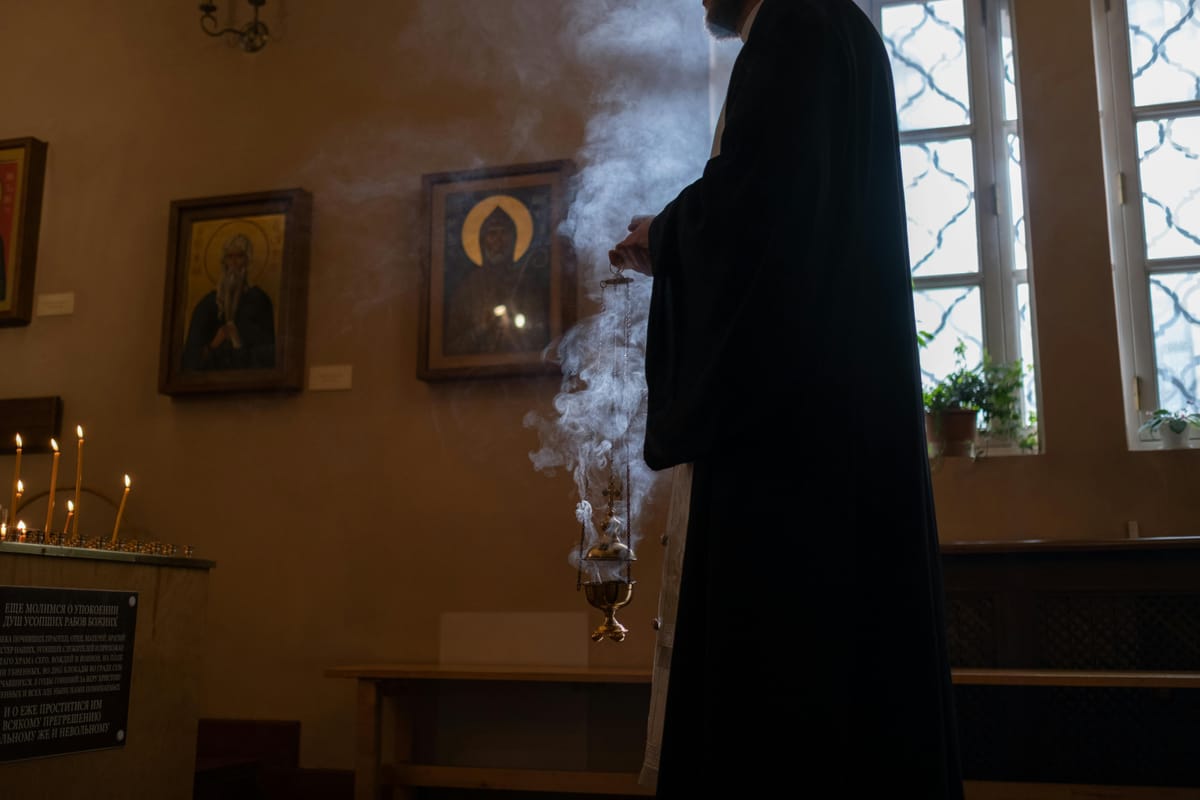From Pentecostal Fire to Orthodox Stillness: A Journey of Grace and Mystery
I’ve been on a winding journey—from the fire of Pentecostal zeal to the stillness of Orthodox mystery. This is a story about wrestling with truth, unlearning pride, and slowly learning to let grace lead. I haven’t arrived… but I’m getting to hope.

I didn’t plan to end up here.
If you had told me years ago that I’d find myself worshiping in the stillness of an Orthodox liturgy—chanting ancient prayers, lighting candles, and confessing sins—I might’ve laughed. Or argued. Probably both. But here I am, and I want to share a bit of how I got here—not because I’ve arrived, but because I’m still very much on the road.
Childhood Faith and Pentecostal Upbringing
I grew up Pentecostal. The kind of Pentecostal where services could erupt into speaking in tongues, emotional highs, and spontaneous altar calls that left you unsure whether you’d met the Holy Spirit or just inherited someone else’s anxiety. It was both beautiful and chaotic.
There was genuine faith, but also emotional instability. At home, I witnessed what felt like a spiritual version of bipolarity—wild swings between spiritual fervor and everyday brokenness. As a kid, I didn’t know how to process that. I just knew something didn’t sit right. I felt both drawn to God and confused by how He was represented.
The Reformed Turn: Doctrine, Logic, and Control
In my early adult years, I swung hard in the other direction. I found comfort in Reformed theology—specifically five-point Calvinism. It offered structure, logic, and a God who was in control. Predestination. Total depravity. Sovereign grace. All of it gave me a system that made sense. And it gave me a new language: sola scriptura, sola fide, sola gratia.
But systems, even beautiful ones, can become prisons when held too tightly. I began to realize that I was preaching grace but struggling to practice it. My theological framework worked great on paper—but it didn’t always produce the fruits of the Spirit in my heart. I found myself becoming more rigid than loving, more concerned with being right than being in relationship.
Rediscovering the Spirit and the Role of Mystery
Over time, I began to ask: Where is the Holy Spirit in all this? Where is the mystery?
My Reformed lens had made me suspicious of anything that couldn’t be exegeted cleanly. But God is not a concept to master—He’s a mystery to behold. I started reading the early Church Fathers, people who lived and worshiped before the New Testament canon was even finalized. Their reverence, their humility, and their understanding of Scripture within the Church—not just from the Church—was compelling.
The phrase that kept echoing in my heart was this: “The Church gave us the Bible, not the other way around.”
Finding Orthodoxy: Stillness, Balance, and Humility
Eventually, my journey brought me to Orthodoxy—specifically the Antiochian Orthodox Church. What drew me wasn’t the aesthetics (though incense and iconography have their beauty). It was the humility.
Orthodoxy doesn’t try to explain everything. It embraces mystery. It holds fast to tradition but doesn’t weaponize it. It honors Scripture deeply while recognizing that not everything about God can be reduced to a proof text.
If it could, there wouldn’t be so many “churches” claiming Sola Scriptura—yet standing so far apart on so many important doctrinal and eternal matters.
In Orthodoxy, I found space. Space to admit I don’t know everything. Space to hold both conviction and compassion. And space to heal.
What I’ve Learned (and Still Am)
This journey has been anything but linear. There have been detours, disappointments, and long seasons of silence. But here’s what I’ve learned so far:
- Theological systems can be helpful, but they’re not salvific. Only Christ is.
- Humility matters more than certainty. Especially when talking about God.
- Grace is not just a doctrine—it’s a way of being.
- Mystery isn’t a cop-out. It’s often where the real encounter with God begins.
- If your faith isn’t drawing you deeper into humility and grace, it may be time to pause and reflect.
I plan to write more soon—unpacking some of the terms and movements that shaped my path: Pentecostalism, Calvinism, the Reformation, and Eastern Orthodoxy. Not to create a glossary, but to give context for those walking their own winding road.
But for now, I’ll just say this:
I haven’t figured it all out. I probably never will. But I’m learning to rest more in grace than in answers, to love more deeply than I argue, and to walk with others—even when they’re in a different place—because God has been kind and patient with me.
And that’s more than enough.




